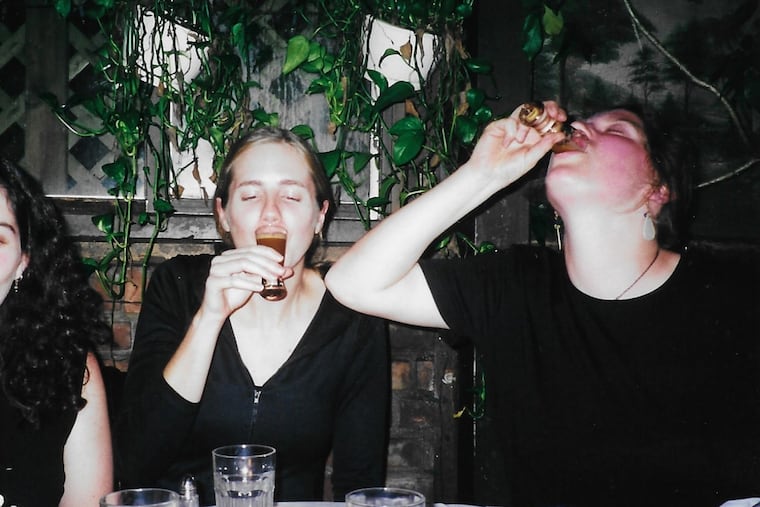Sorry, folks: No amount of alcohol is ‘safe.’ We have to stop pretending it is.
It’s a huge downer, I know. But I'm living proof that giving up alcohol isn't so bad — I sleep better, feel better, save money, and still find plenty of ways to have fun.

Dry January is as good a time as any to face a sobering reality: No amount of alcohol is “safe.”
This contradicts the story we’ve been told for years, which was that having small amounts of alcohol — say, a glass of red wine at dinner — is healthy, and better than not drinking anything at all.
That belief was rooted in science — namely, studies that showed moderate drinkers were healthier than people who abstained. But much of that research was imperfect. When studying something as complicated as human beings, there are a lot of factors that can influence a finding. For instance, moderate drinkers may have been wealthier, exercised more, and followed other healthy habits that could explain their longevity, while many people who didn’t drink at all were former heavy drinkers who stopped because they developed health problems.
In short, in these studies, the amount of alcohol people drank could have had little to do with how long they lived.
A sweeping 2023 report that took a fresh look at more than 100 studies published over a span of 40 years concluded that even small amounts of alcohol — less than two drinks per day for women and three drinks for men — is bad for you.
That same year, the World Health Organization went even further, declaring that no amount of alcohol was safe, noting that its risks — at least seven types of cancer, as dangerous as asbestos and radiation — “start from the first drop.”
» READ MORE: Even one drink a day may shrink your brain, Penn study suggests
This is a huge downer, I know. But it’s time to face facts, and we’re not: Despite the recent trendy surge in sober “mocktails,” alcohol remains an integral part of our social infrastructure. According to government data, 80% of Americans over the age of 12 have had a drink; according to what I see, even that number feels like an underestimate.
Our public health agencies aren’t doing nearly enough to disseminate the fact that alcohol isn’t healthy, even in small amounts. And it’s taking a toll.
I get it: Drinking can be great — it can play a key role in calming first date jitters, making it easier for shy coworkers to bond after hours, or surviving an Eagles season. Almost nothing soothes jangled nerves better than the pop-sigh sound of opening a beer at the end of a hard day. All of this makes alcohol hard to break away from. I discovered this when I decided to stop drinking a few years ago.
I’ll have a glass every few months, maybe, but I gave up my nightly wine with dinner as I rounded middle age, when even a few sips started derailing my sleep. It was an easy decision to make, as in my 40s, feeling well-rested became far more valuable than an extra laugh or two the night before. Plus, I watched alcohol take a toll on my family: three of my four grandparents were extreme alcoholics (even lost a family business as a result), and my father hid his own habit from me for years.
It wasn’t until he developed dementia and I became his full-time caregiver that the truth came out. On one of our many emergency room visits, a doctor who’d never seen my father before took one look at the pattern of blood vessels on his stomach and turned to me. “He’s a heavy drinker,” the doctor said, with a look of certainty that told me this was fact, not opinion.
Watching your father’s body break down over the course of 10 years — to the point when he couldn’t walk, talk, or understand anything happening around him — would be enough to turn anyone off of alcohol.
But I found that choosing not to drink put me somewhat on the outs. As a mom, I’m surrounded by wine — or “mommy juice,” as many call it (that alone is telling). Drinking is a part of every parent social event; snow days and weekend meetups become excuses to break out the bubbly before 5 p.m. We’re even supposed to drink wine during art lessons.
As a mom, I’m surrounded by wine.
The wine culture among moms has created a dangerous trend. Over the last 20 years, alcohol-related health issues have increased among all groups — but the highest spike has been among white, middle-aged women.
And in Pennsylvania, where the opioid crisis has decimated neighborhoods and deaths are rising, recent data show that alcohol kills more people than overdoses.
I’ve hesitated to write about this because, like I said, huge downer. But the evidence is irrefutable: Alcohol, even in small amounts, isn’t harmless, and we need to stop pretending that it is. Since I gave it up, I sleep better, feel better, and save a lot of money. And there’s no shortage of fun in my life.
So I encourage everyone (especially women) to try Dry January — and Dry February, Dry March, and all the months that follow.